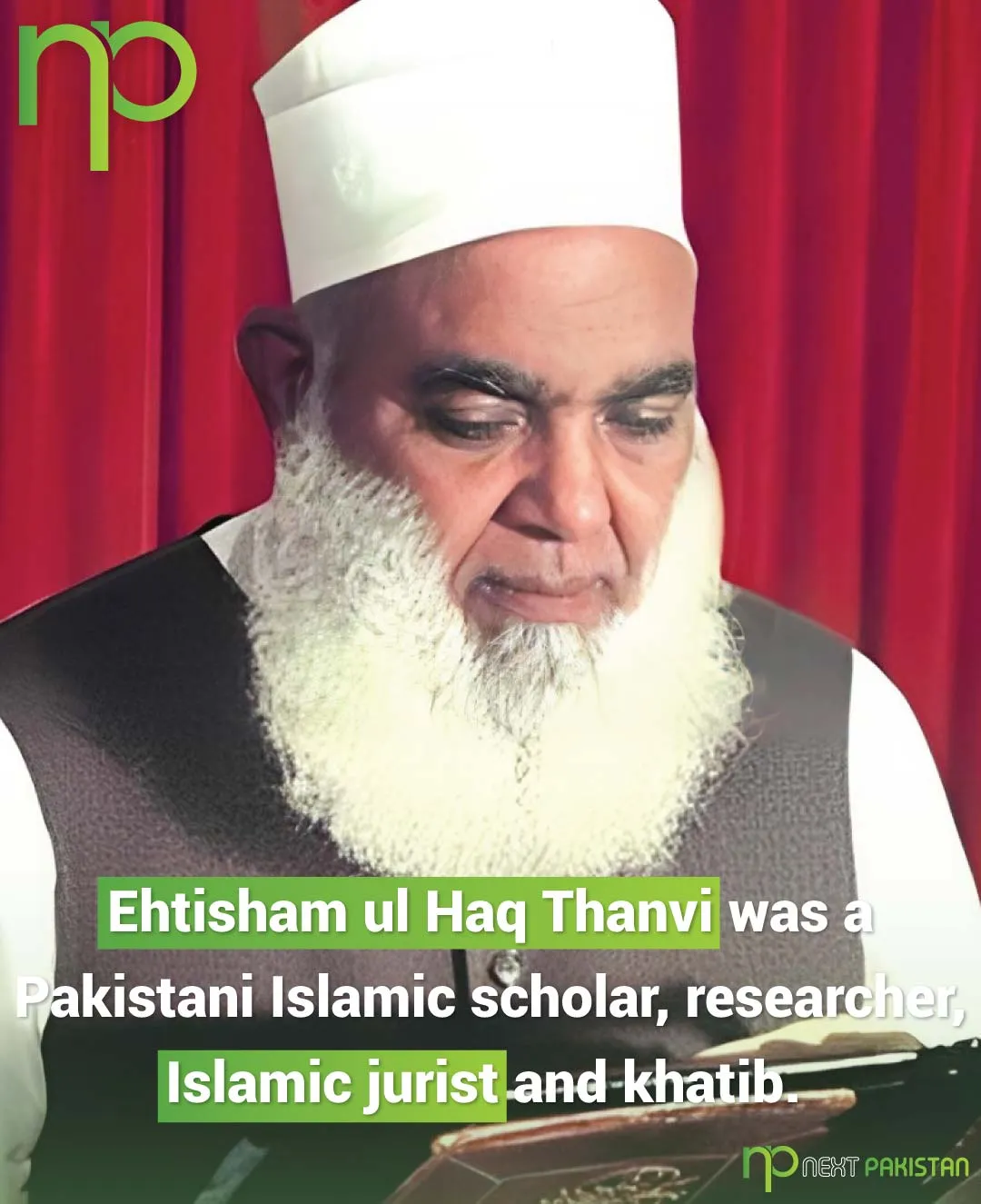
- February 28, 2024
- ubaidah khan
- 0
A Stalwart of Islamic Scholarship and Preaching
Introduction:
Ehtisham ul Haq Thanvi (15 May 1915 – 11 April 1980) was a distinguished Pakistani Islamic scholar, researcher, jurist, and khatib, known for his profound contributions to Islamic education and preaching. This article delves into his early life, education, career, and the impactful legacy he left behind.
Early Life and Education:
Born in Thana Bhawan, India, in 1915, Ehtisham ul Haq Thanvi displayed an early inclination towards Islamic studies. Memorizing the Quran at the age of 12 marked the beginning of his educational journey. He pursued studies in Persian books at Madrasa Arabia Meerut and furthered his Arabic education at Mazahir Uloom Saharanpur. His formal education culminated at Darul Uloom Deoband, where he graduated in 1937. During this time, he formed spiritual bonds with influential figures like Ashraf Ali Thanwi. Notable scholars who shaped his education include Hussain Ahmad Madani, Shabbir Ahmad Usmani, and Muhammad Ibrahim Balyawi.
Career and Preaching:
Ehtisham-ul-Haq commenced his preaching activities in New Delhi in 1939. During this period, he engaged with prominent political personalities such as Liaquat Ali Khan, Khawaja Nazimuddin, and Abdur Rab Nishtar. His association with Ashraf Ali Thanwi’s Majlis Dawa-ul-Haq persisted from 1930 to August 1947. Despite receiving invitations to participate in the 1945 elections, he adhered to the advice of his mentors and abstained from political involvement. From 1940 to 1947, his focus remained solely on preaching. Following the partition in 1947, he played a crucial role alongside Liaquat Ali Khan in the resettlement of refugees from India.
Contributions to Resettlement:
Upon arriving in Karachi on 9 August 1947, Ehtisham-ul-Haq actively participated in the resettlement efforts, particularly in the establishment of Jamia Masjid Thanvi. This mosque, named in his honor, stands as a testament to his role in shaping the religious landscape of Karachi.
Death and Legacy:
Ehtisham ul Haq Thanvi passed away on 11 April 1980, succumbing to a heart attack. His legacy, however, lives on through the countless lives he touched with his teachings and contributions. His body was flown from Delhi to Karachi, where he was laid to rest near Jamia Masjid Thanvi, a place that stands as a symbol of his enduring impact.
Conclusion:
Ehtisham ul Haq Thanvi’s life journey exemplifies a commitment to Islamic scholarship and preaching. His dedication to education, spiritual development, and humanitarian efforts during the partition underscores his multifaceted contributions. The enduring presence of Jamia Masjid Thanvi and the memories of his teachings ensure that his legacy continues to inspire generations of followers and scholars in the realm of Islamic studies.